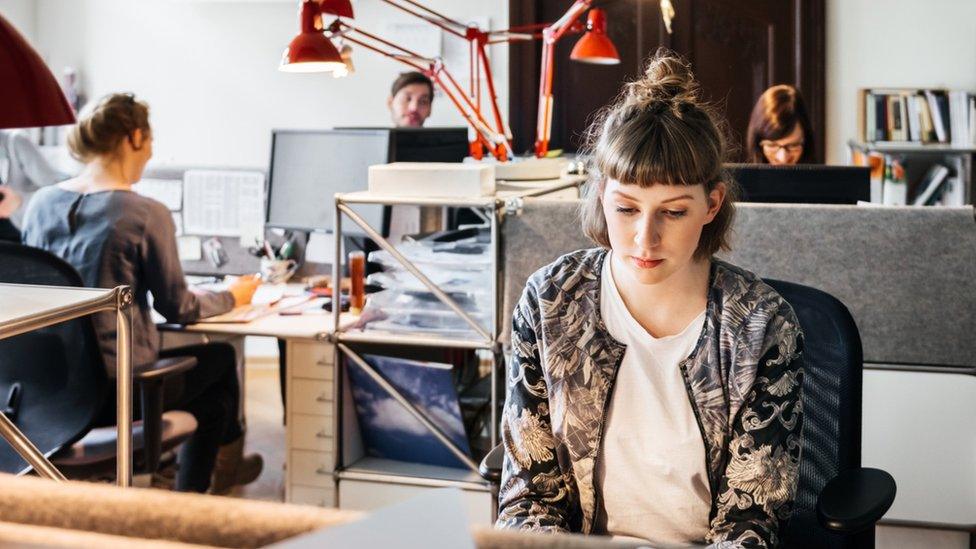Return to the office must not harm women's careers, says Aviva boss
- Published
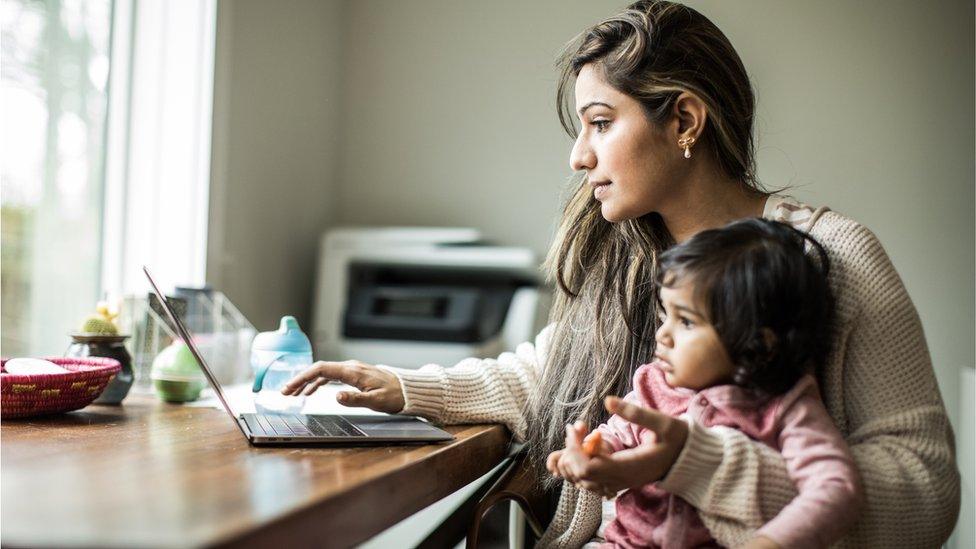
Research suggests women take up the majority of childcare responsibilities
Companies need to ensure the return to working from offices does not "jeopardise" career opportunities for women, the boss of Aviva has said.
Amanda Blanc said it was important firms created the "right environment for everyone to flourish" and for women to have the same opportunities as men.
A previous BBC survey found 56% of women said they thought working from home would help them progress at work.
Many are returning to offices following the ending of work-from-home guidance.
Speaking to the BBC's Today programme, Aviva chief executive Ms Blanc said firms "need to think" about how workplace arrangements would be set "because if what you see is that all the men come back into the office and the women don't, then obviously the women are not around when some of the conversations are being had and they could miss out on opportunities".
Ms Blanc, who is also the government's Champion for Women in Finance, said she wanted her 20,000-strong staff to be in the office about three days a week, but added there would be "big flexibility around that".
"I am really keen that we do have some physically presence in the office even though I think the way we work in the office will be different than how it was pre Covid," she said.
"I don't want that to happen."
Ms Blanc said the progression of women in the financial services sector was "just simply not good enough" as they were "not moving into more senior roles quickly enough".
"It's my role as the government's women and finance champion, but also as a woman leading an organisation, to make sure we create the right environment for everyone to flourish and for women to be given the same opportunity as men," she said.
"We just need to make sure that in the way that we work we don't jeopardise women's opportunities."
Previous research, external from the Institute of Fiscal Studies (IFS) has suggested even when mothers were the primary earners before the coronavirus pandemic, their paid work was still interrupted more than that of their lower-earning partners in order to meet additional childcare demands.
Researchers also found mothers did more housework and childcare irrespective of their pre-lockdown relative pay.
Lower-paid mothers did double the amount of housework and 41% more childcare than higher-paid fathers, while higher-paid mothers did 6% more housework and 22% more childcare than lower-paid fathers.
Meanwhile, global data from UN Women has suggested women were doing significantly more domestic chores and family care, because of the impact the pandemic, which it has warned could wipe out 25 years of increasing gender equality.
'Hokey Cokey'
Ms Blanc said she believed the "changing back and forth" in work-from-home guidance throughout the pandemic had made it "difficult" for staff to plan their lives around how they work.
"It's been like the Hokey Cokey hasn't it? We're sort of in and we're out," she said.
The Aviva boss is not the first in the finance sector to raise concerns about women's career progress being affected by workers returning to the office.
Bank of England economist Catherine Mann previously told the BBC there was a risk women who were working mostly from home could see their careers stall.
She said it was a particular issue for mothers facing school disruptions and difficulty accessing childcare.
Related topics
- Published8 November 2021
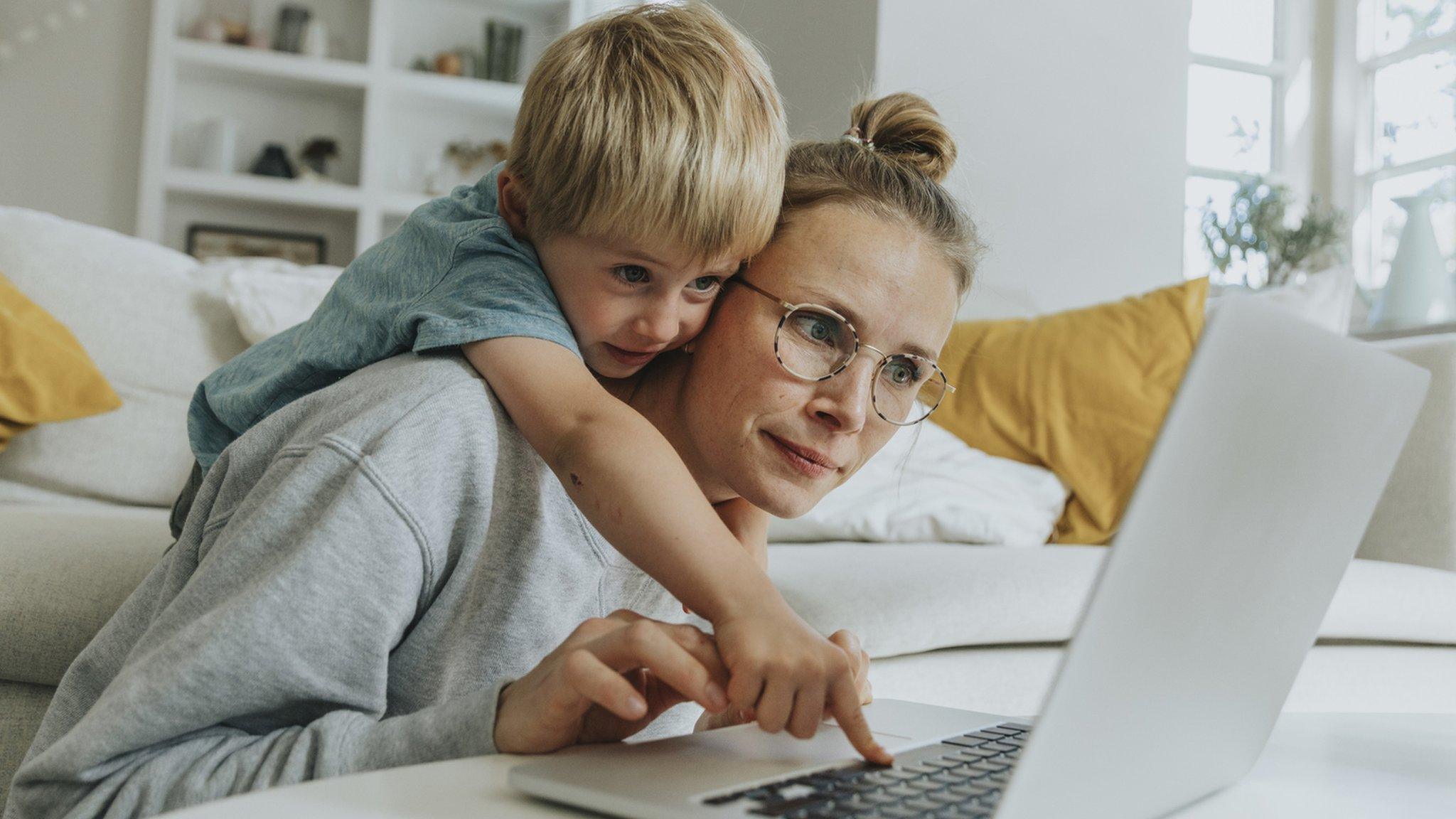
- Published28 September 2021
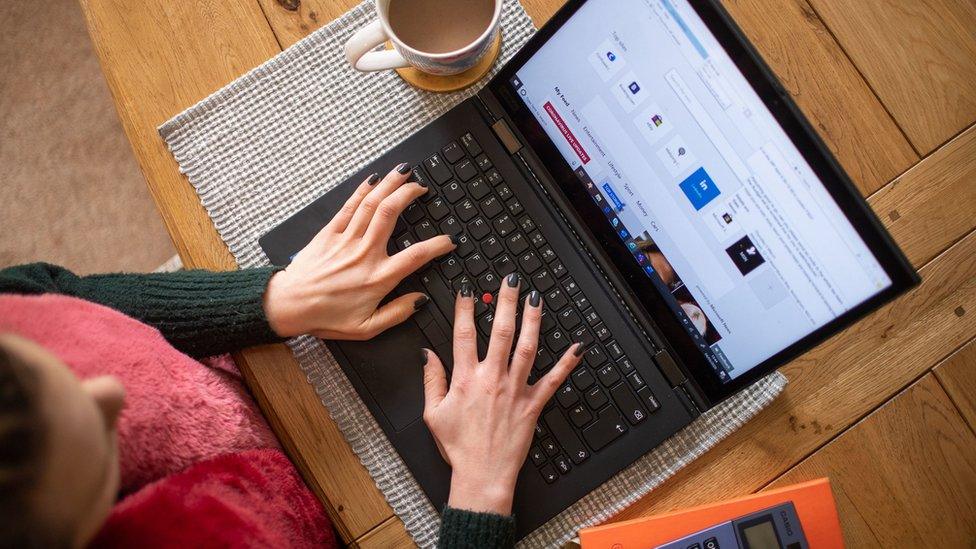
- Published26 November 2020
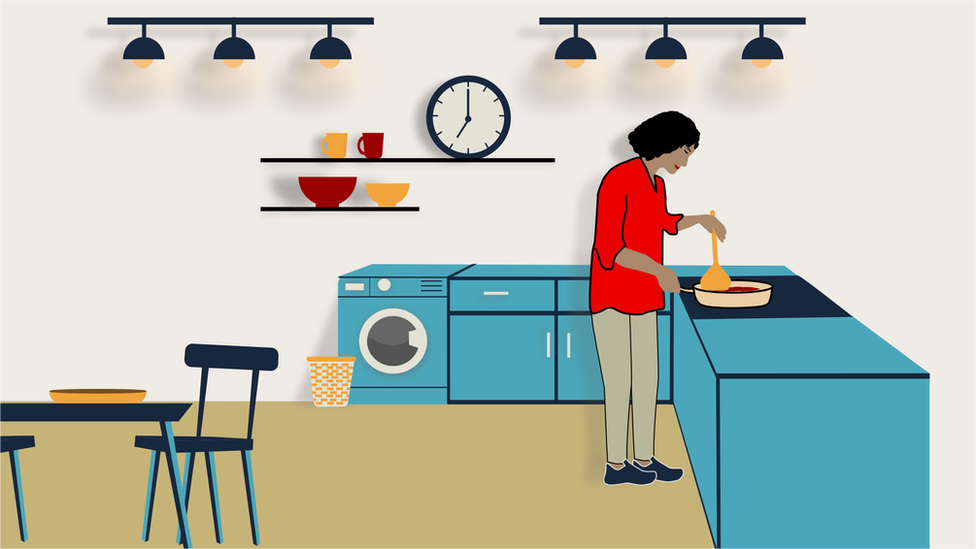
- Published12 November 2021

- Published24 January 2022
